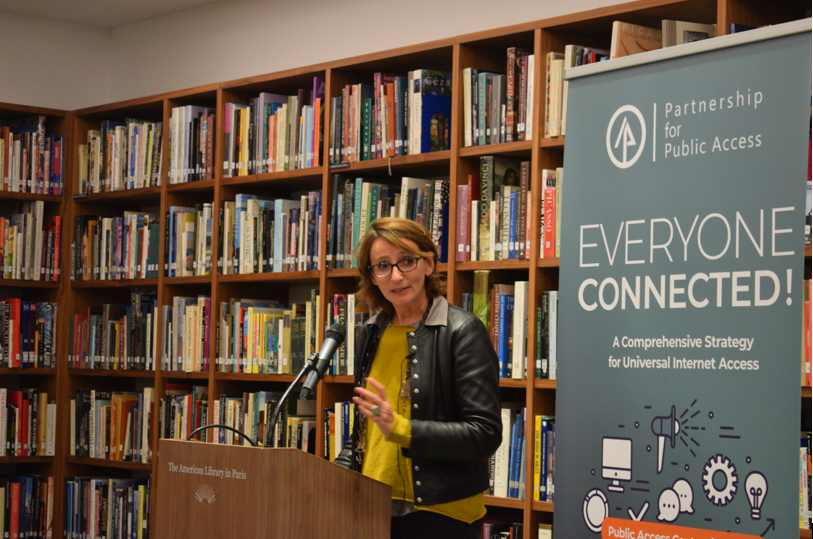A Unique Role: Libraries’ Contribution to Internet Connectivity
14 November 2018

With half the world's population still offline, the need for meaningful solutions to ensure that everyone has the possibility to connect is as high as ever. While traditional commercial provision will have a role, alternatives must also be mobilised, not least libraries. This was the message of an event co-organised by IFLA in the margins of the Internet Governance Forum in Paris on 13 November.
At the event, participants heard about how offline internet, community networks, and public access in libraries can, together, build a more inclusive internet. We were also honoured to hear from the President of the National Library of France, Laurence Engel.
These approaches provide not only connections for those who do not have the resources or practical possibility to get online, but also alternatives for those who are not fully served by commercial provision.
Offline internet works in areas which have no connection at all. This can be the case for rural and remote areas, but also for people suffering disasters, either natural or human. Muy-Cheng Peich from Libraries Without Borders underlined efforts not only to deliver the benefits of the internet to these communities, but also to work with them to create their own content and make their voice heard.
Community networks – owned and managed by members of the community – offer an alternative to traditional internet service providers. This concept is spreading around the world, with the support of organisations like the Internet Society. As Jac Sm Kee of the Association of Progressive Communications underlined, there’s a particular need for spaces where communities can come together and organise. Libraries are ideal for this purpose.
Maia Simonishvili of the National Parliamentary Library of Georgia talked about the role of libraries in combatting the isolation of rural areas. She noted the efforts of her Library to build and connect libraries, and the possibility through this to promote reading, as well as teach media literacy.
Finally, Laurence Engel, President of the National Library of France, underlined the role of public institutions, especially with it now clear that the private sector alone could not deliver on the promise of the internet. She noted that libraries’ focus on quality and diversity, and on international collaboration made them particular important actors in this field.
With IFLA in the process of developing a toolkit on the policy issues linked to public access in libraries, this event both provided valuable insights, and underlined the key role of libraries in building a genuinely inclusive internet.
Read our draft toolkit, and find out more about how you can get involved in the Internet Governance Forum.